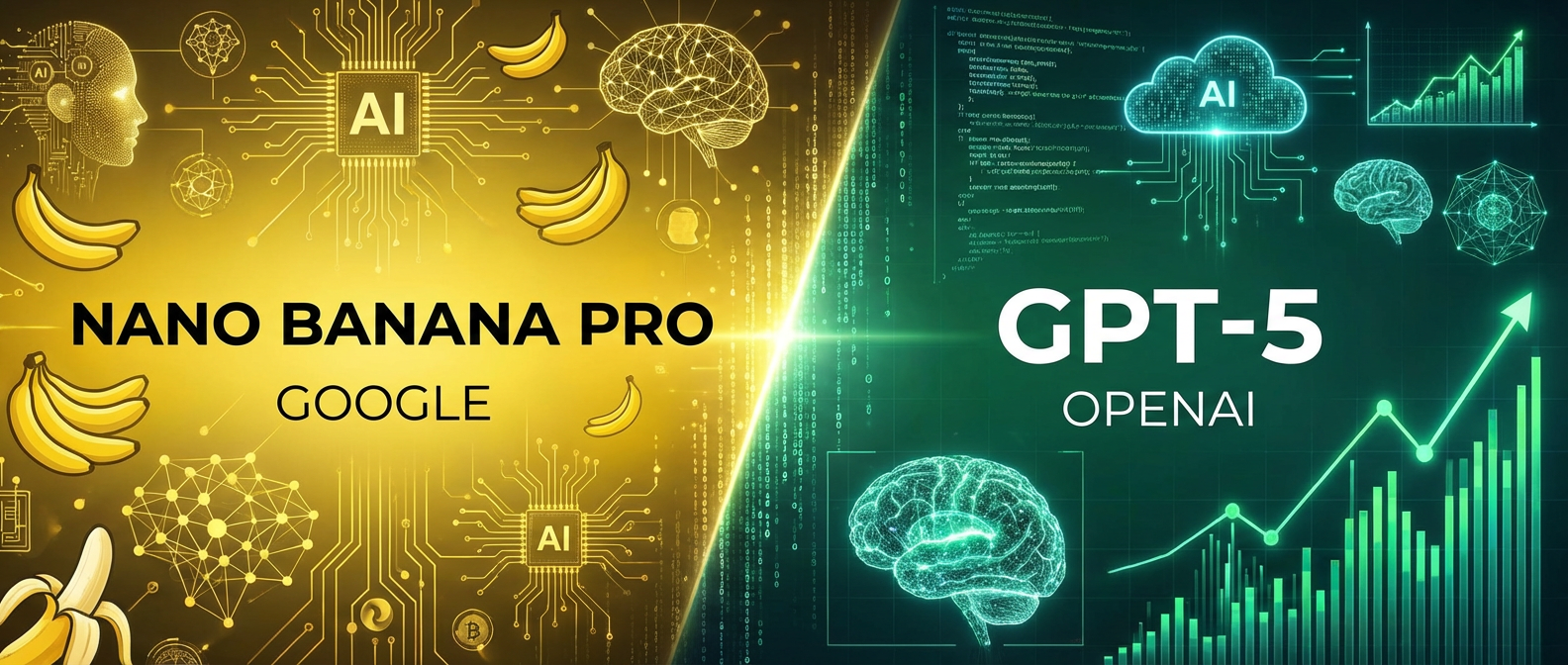Honestly, the introduction of AI has not only changed SEO. It’s also got more exciting
All of a sudden, with tools like Jasper, Writingmate, and ChatGPT, you can easily create a full blog post, a content brief, and even a keyword search in minutes.
I could recall my first time using GPT-4 to audit a website (internal screams), it felt like I’d hired over ten interns overnight. (It was a game-changer). But here’s the hard part nobody wants to talk about.
AI is like a double-edged sword.
Yes, I totally agree that AI helps to create and optimize faster which is great. But we can’t lie; we haven’t noticed that AI has changed how people search in the first place.
Let’s think about it. With Google AI overview, ChatGPT’s web search, and tools like perplexity, users are getting detailed answers to their questions without clicking on any link.

This is seriously affecting the traditional search results, the click-through rates are dropping and total search volumes are shrinking. The harsh truth is that AI is not just helping us rank. It’s also reducing the value of ranking.
Don’t see this article as some rant about future searches or whether AI overviews will replace traditional search. Well, something much closer and even within our control: The mistakes we make when using AI for SEO content.
Yes, the search landscape is shifting dramatically but great content still wins attention, builds trust, and drives action. The problem is that most marketers and content writers are unknowingly sabotaging that advantage by allowing AI to do all the thinking for them(which shows in their content)
When I was building Writingmate.ai, I saw this pattern almost every single day. People were using powerful AI tools but with little to no guardrails. They were just producing content that was fast, cheap, and forgettable.
Let’s quickly unpack the most common AI SEO mistake I’ve seen in 2025 and more importantly how to avoid them before it costs you your hard-earned rankings.
Why AI Makes SEO Mistakes
Let’s all get one thing straight, AI doesn’t “think”. It predicts.
When you prompt your AI tool to “Write an SEO article about email marketing”, it just combines and remixes what it has seen online a million times before. AI isn’t thinking about your brand, your audience. It’s just a brilliant statistical engine.
That’s why so much AI-written content sounds correct but feels empty.
In 2025, Google’s ranking system will now smarter and more sophisticated. They can now detect similarities and keyword stuffing. Google’s ranking statement rewards usefulness and originality not just lengthy content.
So when your AI writes content like
“Email marketing is essential for customers’ engagement and brand awareness…..”
Google's system just basically says:
“Oh great! That is the 1128215th version of that sentence.”
That basic truth is AI isn’t the problem, the real problem is how we use AI. We just ask AI for average and are expecting it to produce something authoritative and magical (really?)
(image placeholder – robot typing repeated content lines)

Mistake # 1: Treating AI as your writer instead of your partner
If you’re that type of person who just copies and pastes and AI’s content then you’re losing a lot. Truly AI writes fast, but not smart. AI has zero context. It doesn’t know why your product exists, why your customers struggle, or why your brand tone sounds friendly, not formal.
In 2025, Google's ranking system brought its A game. It measures authenticity through subtle signs like personal phrases, unique examples, and how long the users stayed engaged with your content. If your blog post keeps sounding like every other “AI SEO GUIDE”, then it might sink in the noise soon.
What to do instead
You need to stop making AI the author of your content, make it an assistant.
Use AI to outline and structure not publish: Allow your assistant (AI) to do the heavy lifting like research, outlining, and structuring your thoughts. Before publishing, make sure you add your human layer edits.
Feed it your insights: For better content, give your AI your data, your examples, and your customers' language/tone. This helps to eliminate genetic content.
Always rewrite your introduction and conclusion: These two parts tell Google and your readers who’s really speaking and thinking behind those words.
Inside Writingmate.ai, we have a feature called the “Author rewrite” prompt. It keeps the AI draft and still helps you to add your own personality and voice before publishing.

Mistake 2: Optimizing for keywords not curiosity
This is a trap nearly every marketer falls into chasing keywords instead of asking the right questions. It’s actually funny when I see brands obsessing over ranking phrases like “AI SEO tools” or “best SEO AI Agentic” (Lol! Really???)
What they fail to realize is that people are not looking for those phrases to just read them, they search to know and make decisions. When it comes to keyword stuffing, AI tools are really great but they fail to understand human curiosity( which is the reason behind a search).
AI can’t understand anxiety or hope happening in a searcher's mind.
A simple fix I use before generating a post is asking myself a simple question
“ Why would someone actually search this? What aim are they trying to achieve? What prompted the search?”
Then based on the answers I got, I prompt the AI.
I don’t just say “ Write an article about AI SEO tools
I say: “Write a guide for a business owner who is comparing AI SEO tools for the first time “
The results?? Obviously, there would be a difference.
The first prompt would produce generic content while the second prompt would create a masterpiece of content that speaks to human beings.
Your content would no longer be a target of a keyword but the main target is the searcher's intent. And that’s exactly what Google’s post-June 2025 algorithm looks for and rewards.

Mistake 3: Thinking AI data equals truth
Have you noticed that a lot of AI tools hallucinate? Every time I test a new AI model, I notice it hallucinates. It comes up with something that isn’t real. It could be a made-up statistic, a citation that doesn’t exist, or sometimes attributes quotes to people who never said them. Sometimes the AI tools sound so plausible that you might actually believe them.
This is 2025, and the penalties for misinformation are very brutal. Google doesn’t expect you to be perfect but be responsible and accountable.
My non-negotiable rules: Never ever trust an AI-generated data unless you can trace it back to a source you’d confidently cite to your client.
If the AI can’t point you to a veritable source - Just delete it.
I recalled when a Writingmate user told me our Fact-checker draft feature saved them from major crises. Their AI tool created a “Hubspot survey” that sounded legitimate but didn’t actually exist(crazy!). The feature flagged the survey as unverified. You can imagine the reactions if it were published. That’s a credibility killer.
Always remember that AI can speed up your research but can’t replace your responsibility.
Mistake 4: Publishing AI content at scale without editing
I am here to announce to you that if you by any chance fall into the category of people who publish hundreds of “unique” AI articles every week.
Congratulations! You just announced to Google that your website is a content farm. Initially scaled- content used to work but after the August 2025 spam update, the rules had changed. Google is now ruthlessly efficient in flagging websites for similar and over-frequent.
Quality >>>>>>> Quantity
I’ve seen sites skyrocket to 500000 visits in just three months, only to lose 90% of them in a single week. The brutal crash was because almost every post had the same rhythm, tone, and structure.
How can this be fixed?
Publish slower, publish harder: Writing one masterpiece is way better than a thousand mediocrities.
Merge posts that overlap: If you have similar AI-generated contents that have overlapping topics, just merge them into one detailed post.
Add that human touch: Always give that content that human touch, you can add case studies, quotes, or even a screenshot. Anything to prove that a human shaped the content.
Mistake 5: Ignoring structure and relationship
People forget that AI writes in a straight line. Google understands the relationship between the ideas on your page and across your sites.
Most AI- AI-generated content sounds okay but deep down, it lacks hierarchy. There are no clear H2s, internal links, or contextual signals. It’s just like putting readers into a city without street signs.
Personally, before I publish any content, I create a human architecture pass
I ensure that the heading flows logically
Link your content to at least three relevant posts.
Use a descriptive anchor text: Use “SEO CHECKLIST FOR 2025” rather than the generic “check here”
What Writingmate did differently is that it has a visual structure assistant. It highlights missing heading hierarchies and every suggestion of internal links. Having a great post structure isn’t just about readability, it is also an SEO signal that can help your site earn readers' trust and that’s exactly what drives ranking in 2025.

Mistake 6: Believing AI’s SEO Score
I called the “Green score” deception. After finishing your content then your AI tool tells you your content is “95/100 SEO optimized” (Haha!). That is a big fat lie! Honestly, the score feels good but it’s just a meaningless metric.
Those scores only measure the technical compliance of the content like the meta description length, keyword density, and the like. They cannot measure creativity, emotion, or unique insight. AI doesn’t know your targeted audience, your niche, or what your site is already ranking.
As a constant writer, when optimizing my content, one important question I ask myself is whether any reader would bookmark or share my content.
If the answer is no, then the SEO score is meaningless.
Mistake 7: Forgetting Who you’re writing for
Ironically, in our rush to optimize our content for algorithms, we forget who our audiences are and then write to please AI tools again. You need to understand that SEO isn’t about satisfying robots. It’s about helping people (audience) to find clarity faster.
Whenever I coach a new founder on content strategy, I tell them:
“The goal isn’t traffic, trust is “
You don’t get ranked because you have traffic.
You get traffic because you’ve earned trust.
This is why AI when used correctly can become your greatest ally. AI can help you build trust quicker through activities like providing structure, researching but it shouldn’t become your voice. It’s just to do the heavy lifting.
How I personally use AI for SEO in 2025
I would like to briefly share my exact content workflow.
Note: This was what I used to grow my Writingmate blog.
Step 1: Research with AI
I use the Writingmate to analyze search intent clusters. It really helps me to find out the questions real users ask.
Step 2: Outline and Compare
I let my AI help me build a content structure then I would compare it with the other top 5 search results.
Honestly, my goal is not to copy them. I just want to compare, find what they are missing, and how I can fill the gap. By doing those, I can provide a deeper and more unique take.
Step 3: Write and Humanise
AI helps me draft paragraphs. I still put examples from my own experience and screenshots or quotes and most importantly rewrite the introduction.
Step 4: Review for depth, not decorations
Lastly, I still do a final scan asking myself some questions like “Did I teach something new or just repackage what’s already known “.
Well, if it falls into a case of the latter, I tried to input something more unique like a mini-case study, my personal opinions.
This simple workflow keeps me safe and consistent through every Google update so far.
What small businesses get wrong with AI SEO
I speak with small business owners every single week at the local cafe, freelancers, and e-commerce stores. Most of these business owners believe that an AI SEO tool will save them time(which is absolutely true) and replace their SEO strategy (which is false)
AI can be a great time saver but it’s a terrible strategist. AI is not a magician, it can only multiply whatever you feed it. If you don’t give information like your brand voice, values, and customer insights. It would just provide you with a generic output
As a small business owner here is a smarter way to use AI
Start small: Don’t just start writing a full blog post with your AI. Use it to generate meta descriptions, FAQs, and product schema.
Then scale up: After the first step, you can now expand to building content outlines and researching content. By doing this you’re providing a core direction.
Teach it your brand voice: You can train your AI by feeding it your previous real blog post, your emails, your social posts so it can learn your tone and brand personality.
Using this strategic progressive approach you should transform your AI from giving you generic output into more brand-aligned outputs.
If you’re using Writingmate, it has a “Voice memory “ feature that does this automatically. It notifies you how you write and inputs that into every future draft.
The feature: Semi-Autonomous SEO AI Agents
Everyone is talking about AI SEO agents that can help you rewrite your underperforming sites and even run your entire SEO audit. The technology is actually very real. I have built some prototypes.
But one key point I keep hammering on is that “ AI tools are great assistants but terrible decision makers ( they don’t really know what is at stake )
I once blindly trusted an early AI agent to optimize 20 of our posts without reviewing them.
The results? Heartbreaking!
The content was actually clean but it removed every personal example, anecdotes, and citations (These were the very elements Google used to rank !). It stripped the soul out of those posts.
Traffic dropped by 18% in less than a week
Lesson learned! AI can execute tasks but never leave your final decision in the hands of AI.
Writingmate SEO AI agent operates in an approval mode. Although it suggests ways you can improve your content, it still allows you to stay in control of your content.

How To Know You’re Using AI The Right Way
Let’s forget about ranking. Here are ways I judge success now :
People are sharing my content in private communities like Slack, WhatsApp because it is genuinely helpful.
When I see readers quote my lines in their own posts. (That feeling >>>>>)
When the analytics of my content are growing steadily and organically ( I’m invested in building trust).
When I read a paragraph and think “This actually sounds like me”
Honestly, if you can say the same about your work. Congratulations! Fam, you are using AI the right way.
Final thought
The biggest myth going around in SEO right now is that AI will replace content creators. The future of SEO isn’t “AI-powered” but “AI-guided“ ( by a human of course ). Every major update by Google this year just proves a point :
Tools may change but intent doesn’t.
People still want answers from people who understand their struggles. Make AI your assistant, not Identity.
Our core mantra at Writingmate from the beginning is AI should help you sound more like yourself not less”. If you carry that mindset into 2026, trust me you won’t have to worry about surviving the Google update. You’ll be the one everyone else is trying to catch up to.

AI SEO services merge AI automation with human experts who would manage your entire SEO platform from start to end. Assume you’re hiring a chef.
Frequently Asked Questions
Sources
- Google Search Central – Creating helpful, reliable, people-first content
- Google Search Quality Rater Guidelines (E-E-A-T Framework, 2023–2025)
- Search Engine Journal – AI SEO in 2025: Opportunities and Risks
- Search Engine Roundtable – How Google Detects Scaled AI Content (2025)
- Ahrefs Blog – AI and Content Originality After Google’s 2025 Updates
- Search Engine Land – What Google’s AI Overviews Mean for SEO Traffic in 2025
- Perplexity Blog – How AI Search Is Changing the SEO Game
- OpenAI – ChatGPT Web Search & AI Overview Impact (Product Update, 2025)
- Reddit r/SEO – Discussion: AI Search Tools Are Eating Click-Throughs (2025)
Written by
Artem Vysotsky
Ex-Staff Engineer at Meta. Building the technical foundation to make AI accessible to everyone.
Reviewed by
Sergey Vysotsky
Ex-Chief Editor / PM at Mosaic. Passionate about making AI accessible and affordable for everyone.



